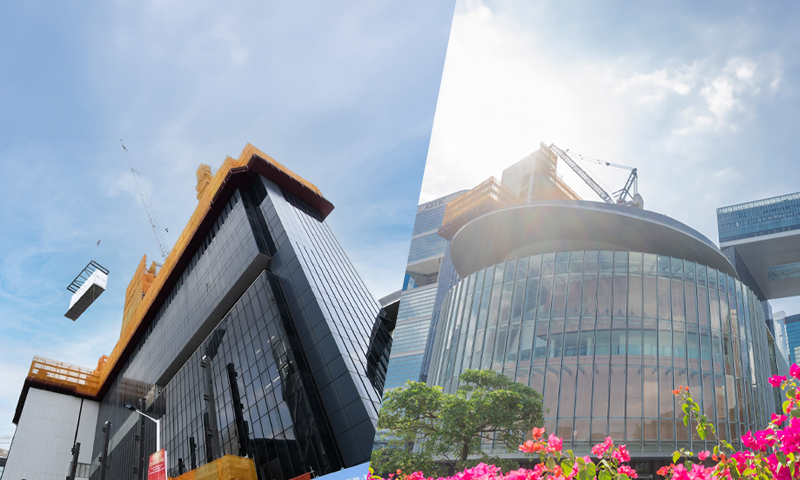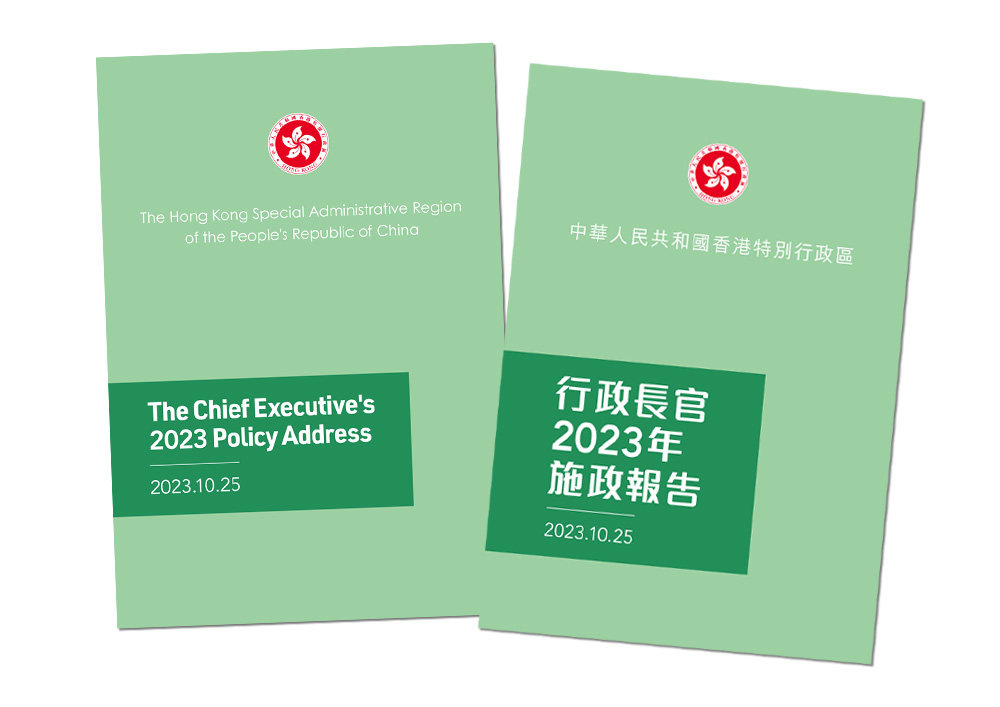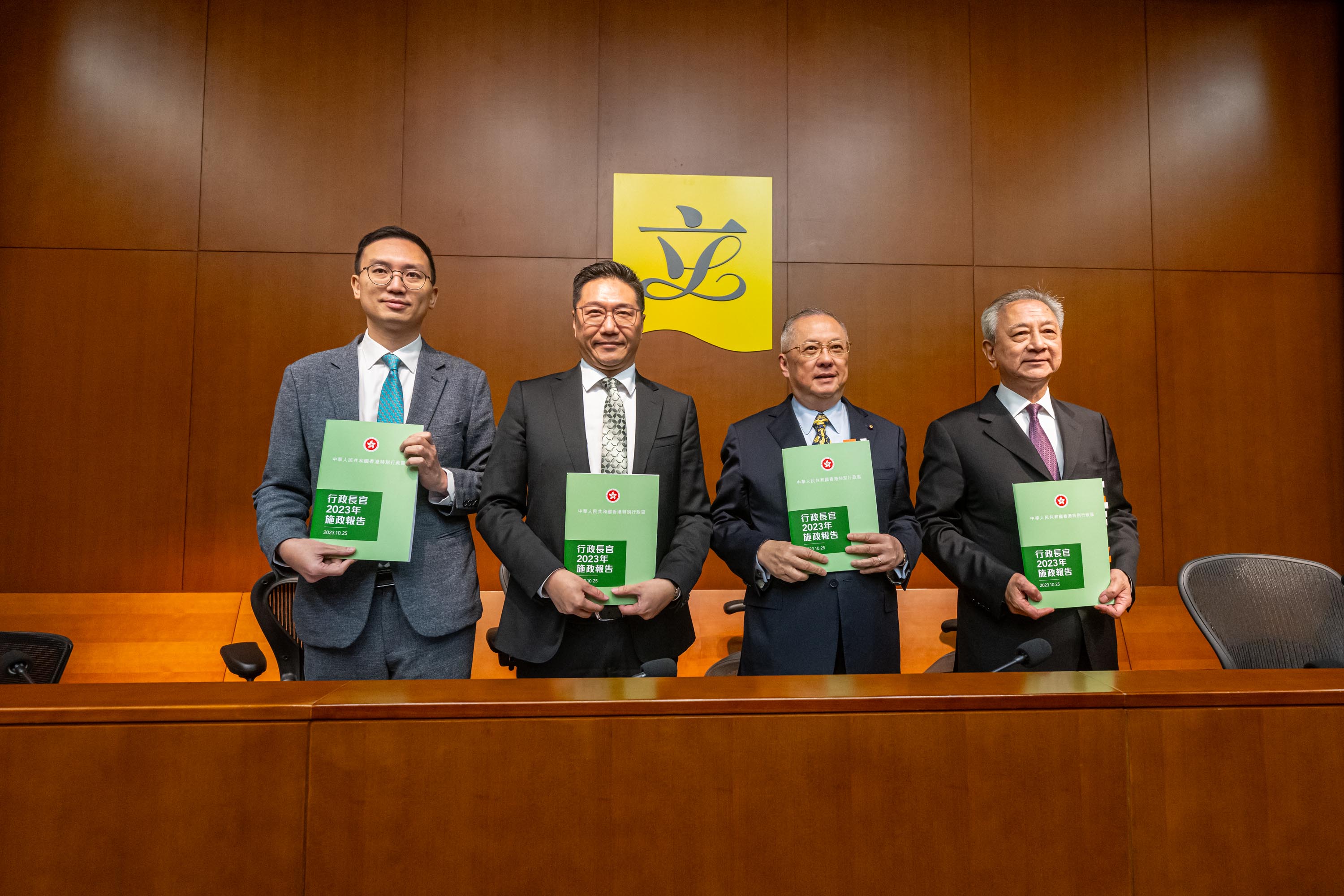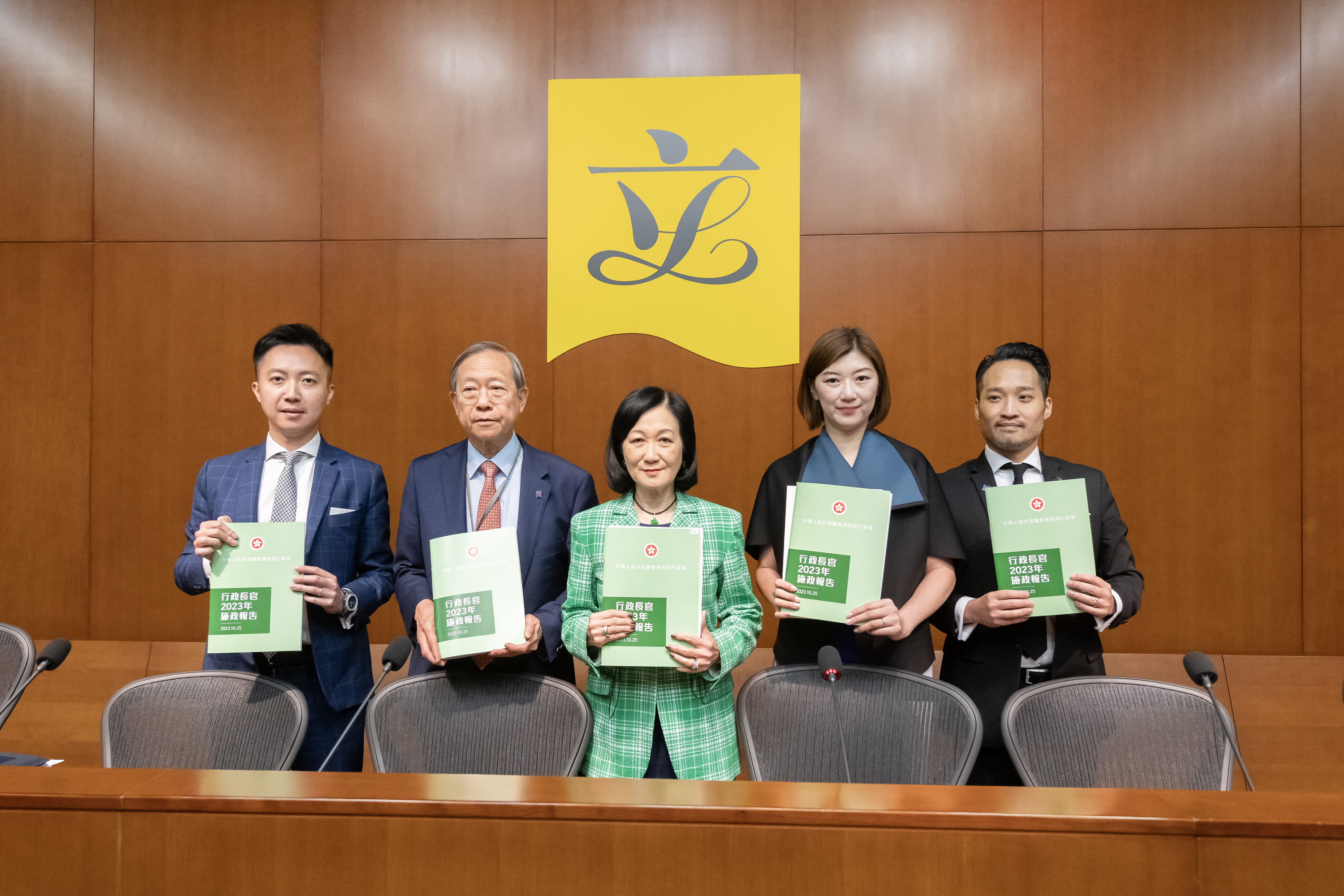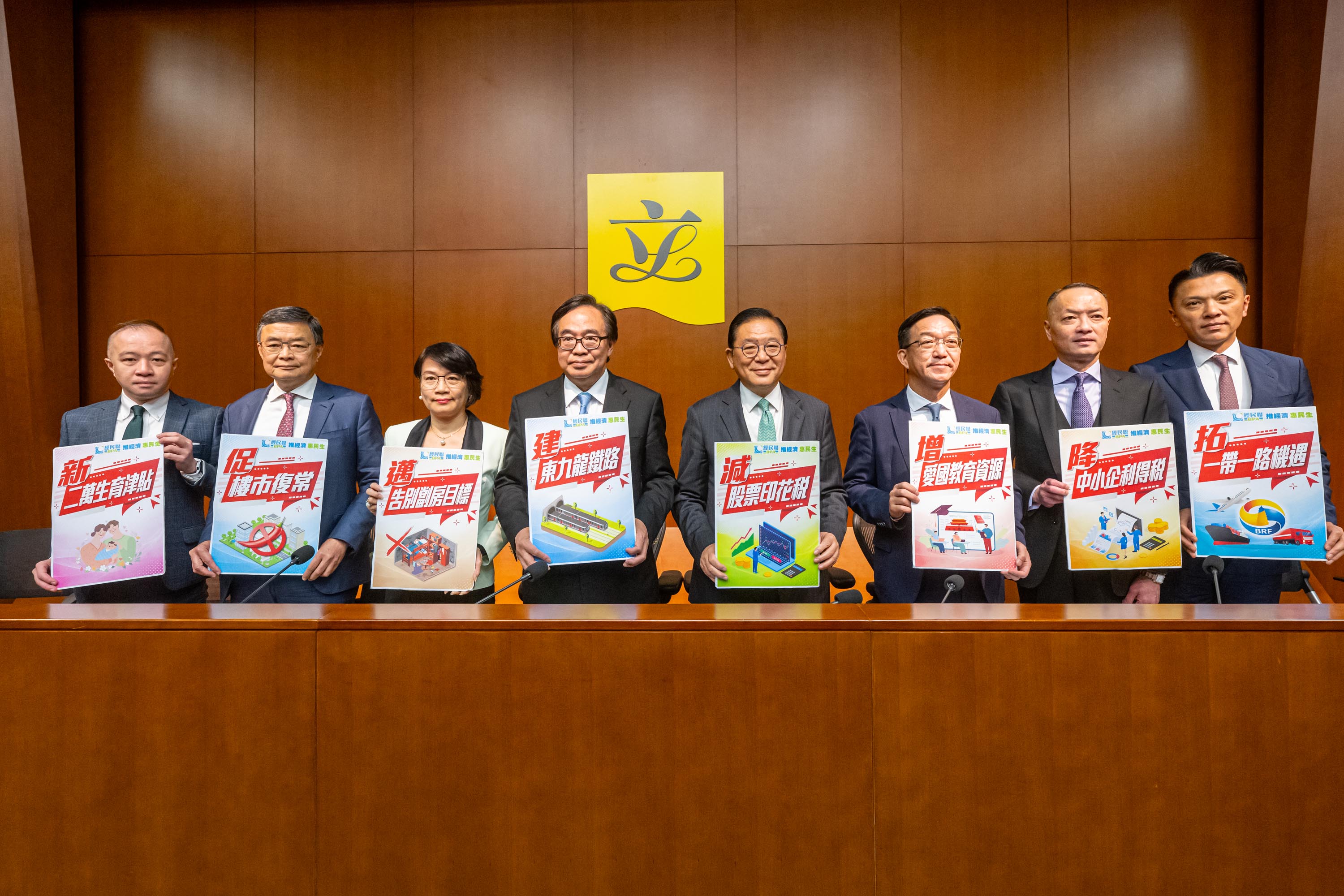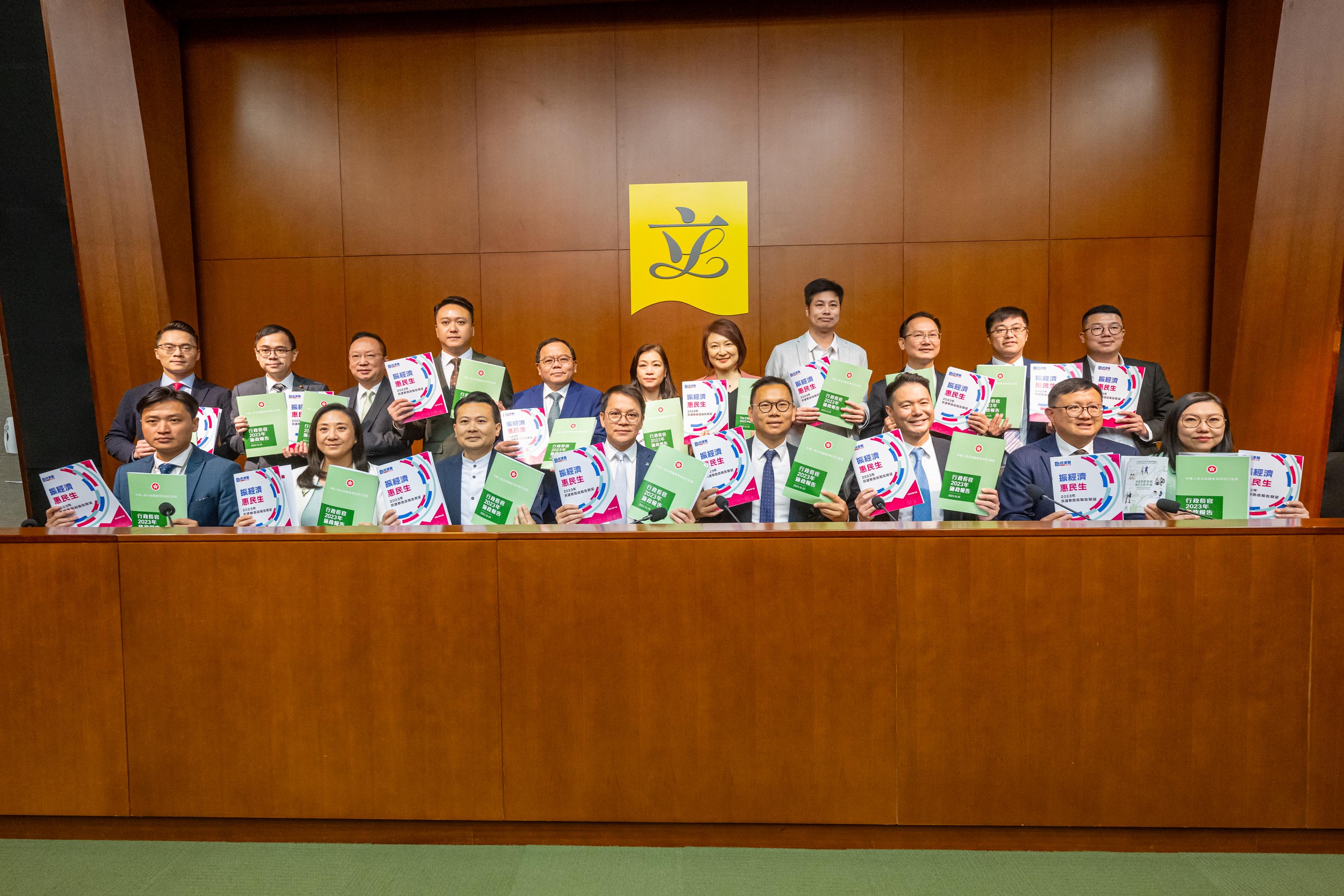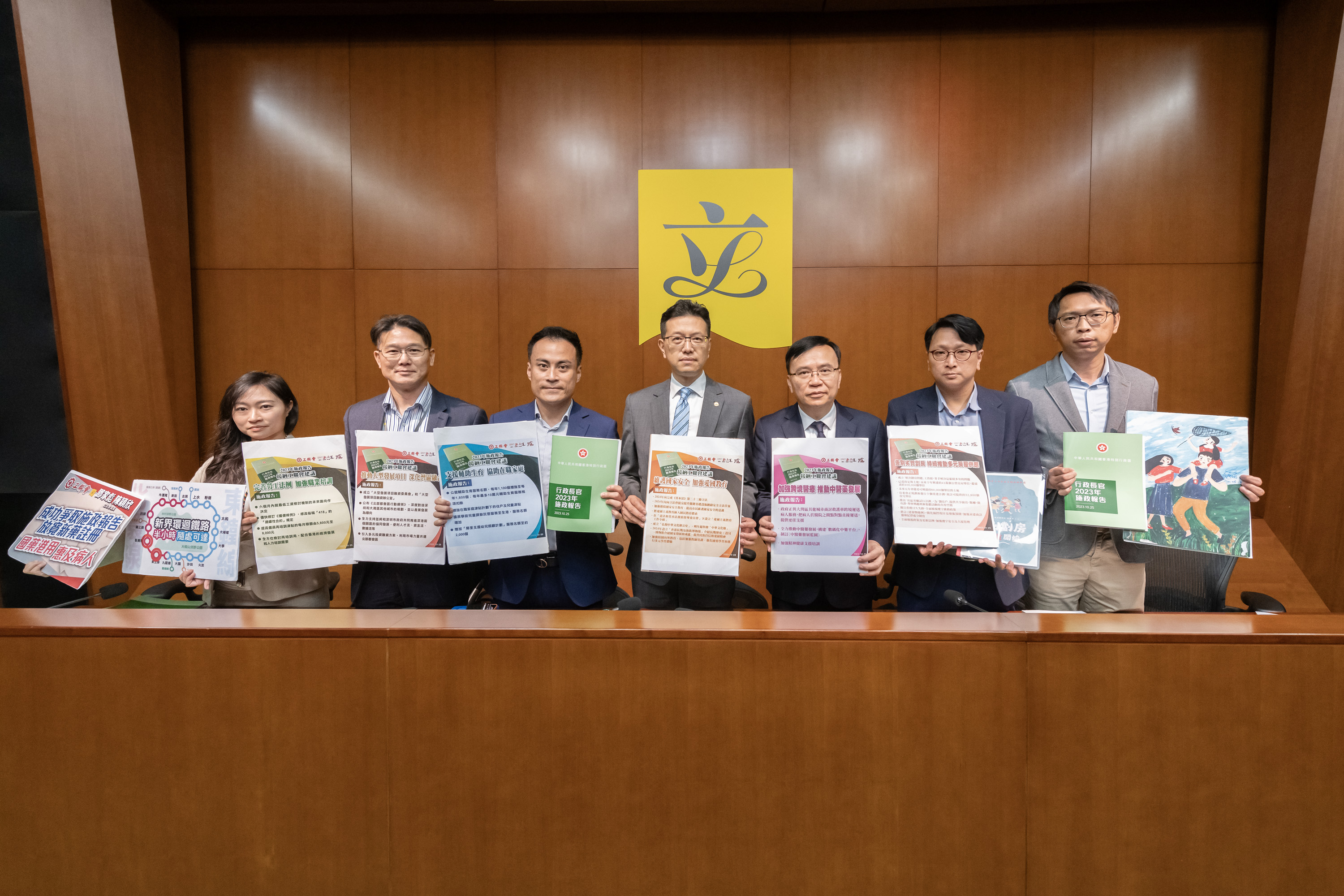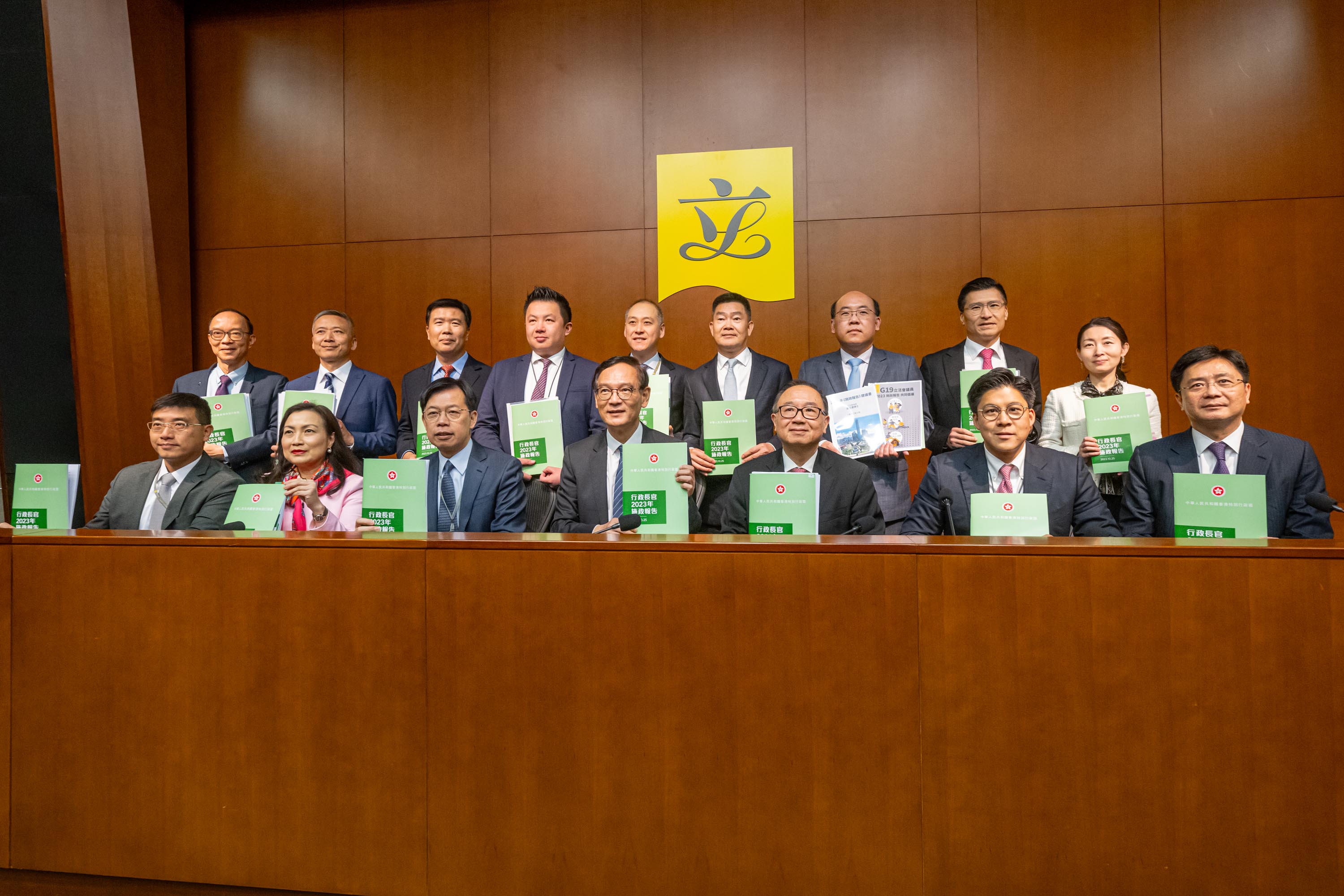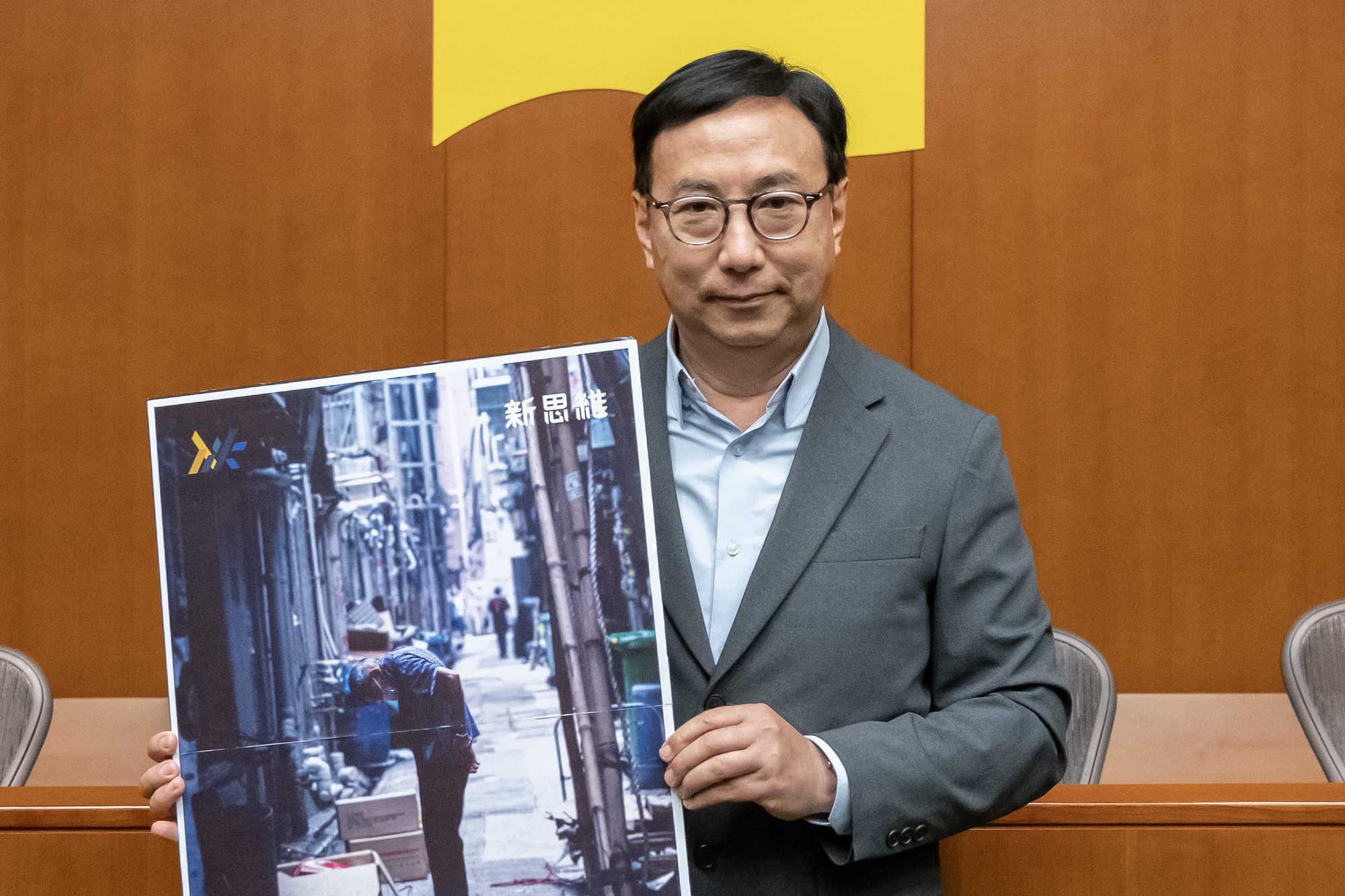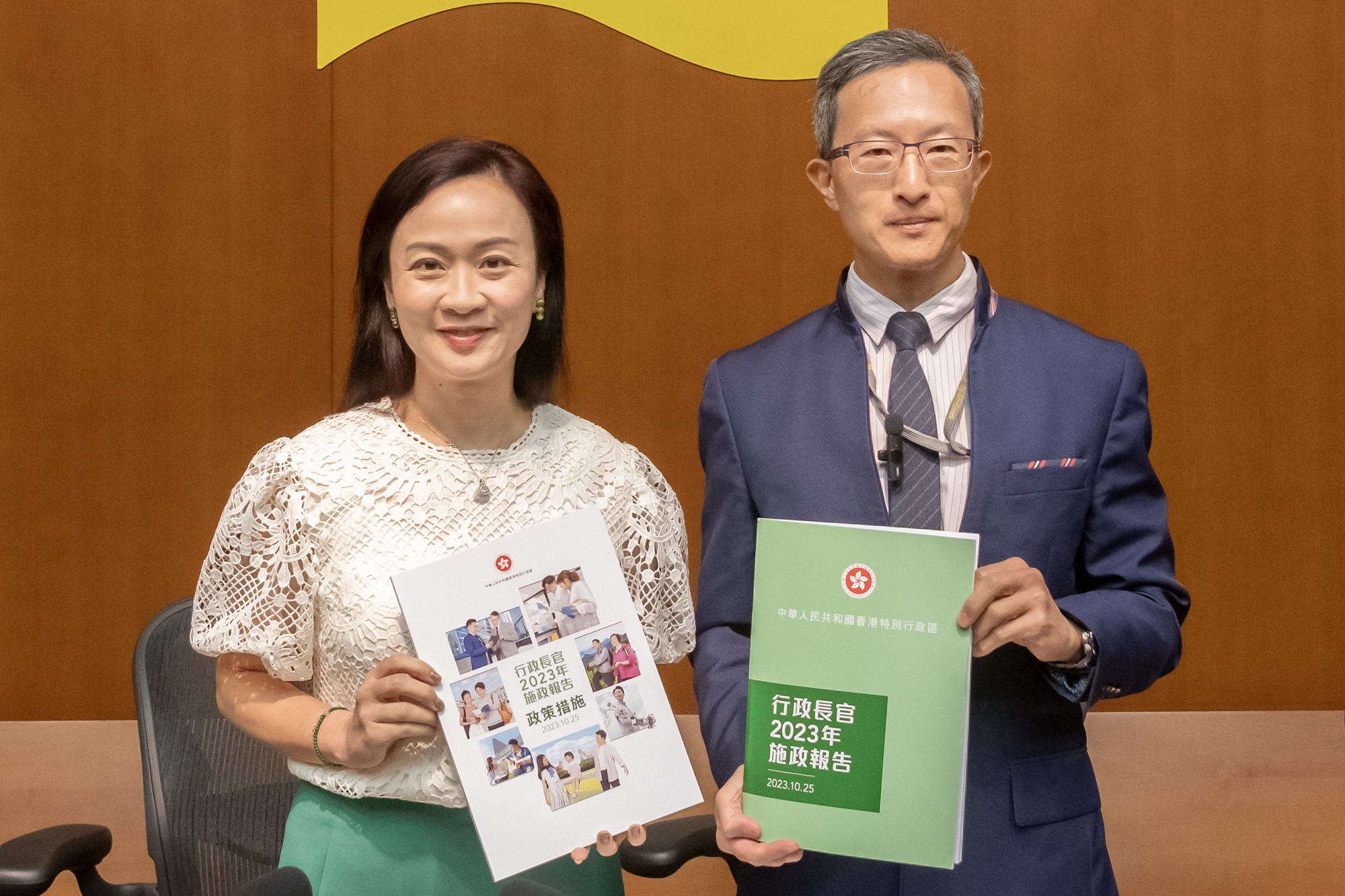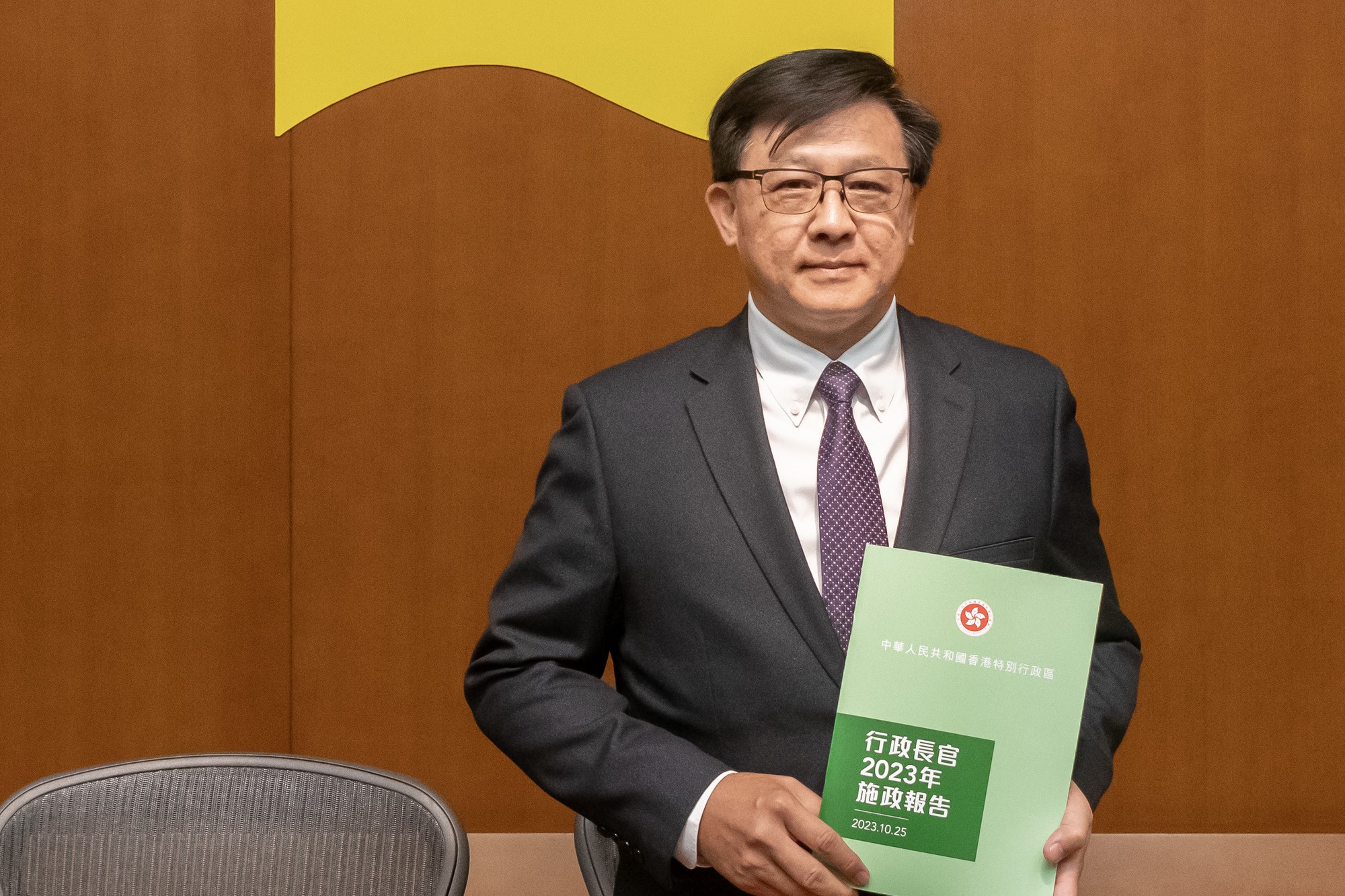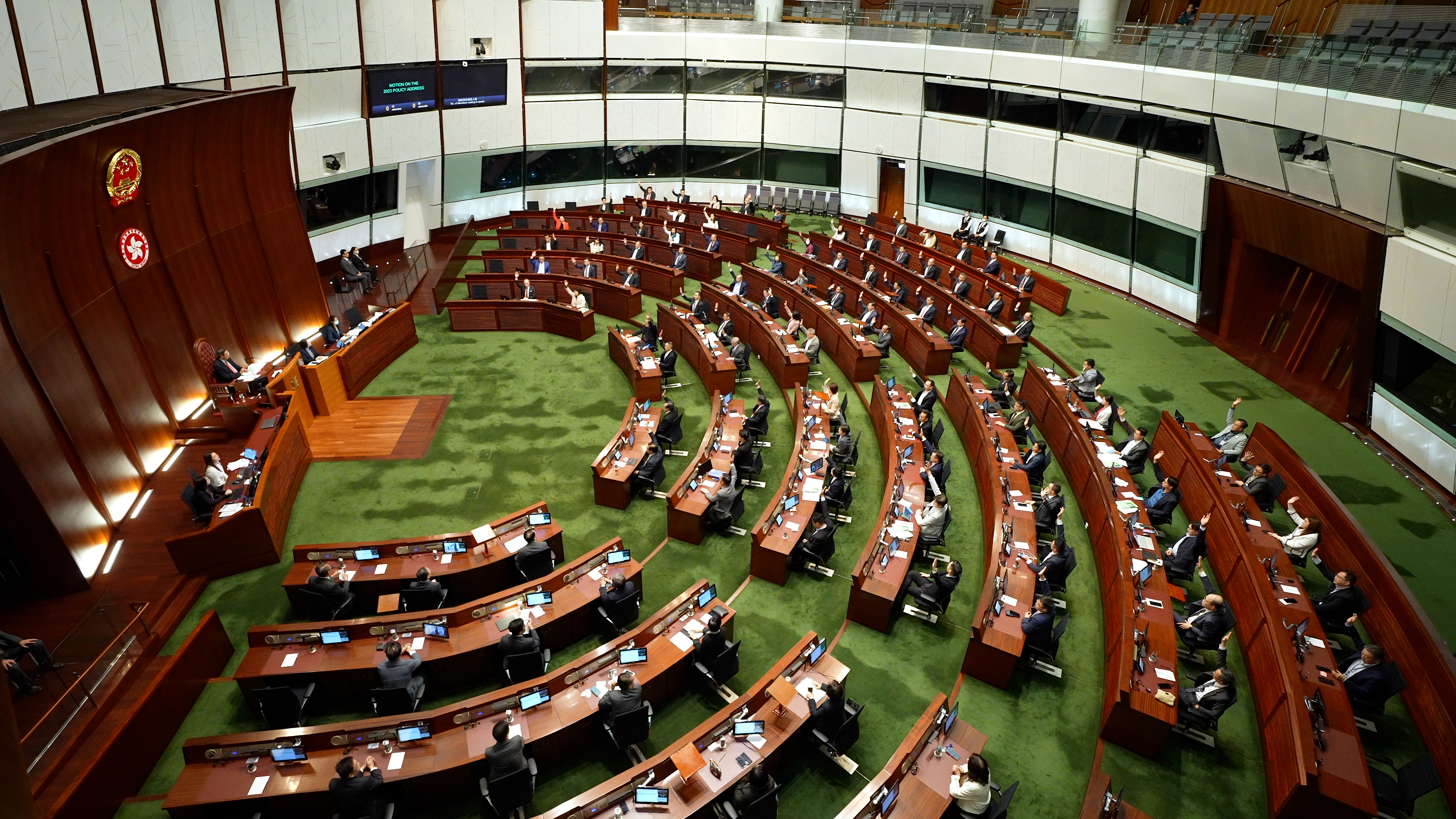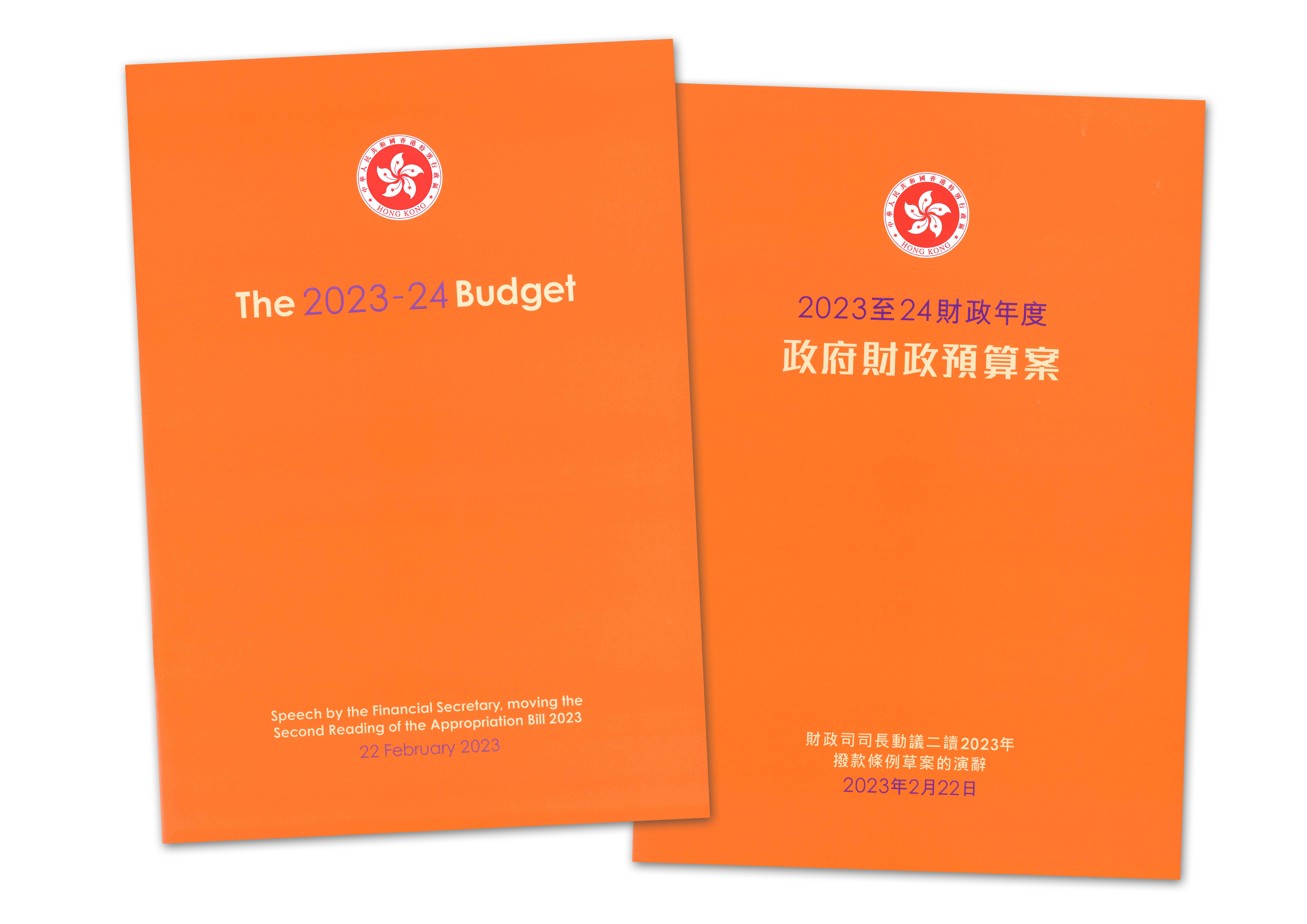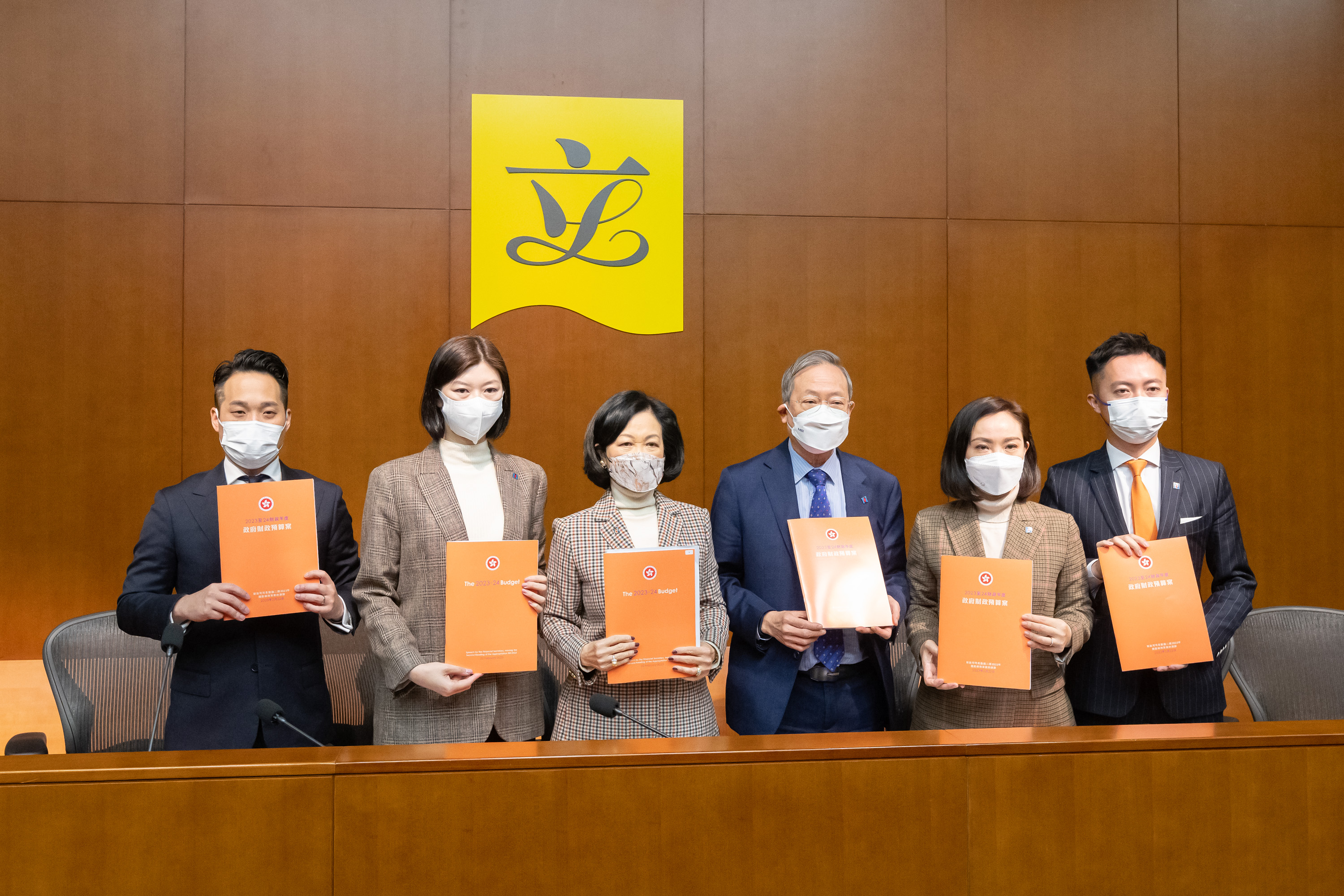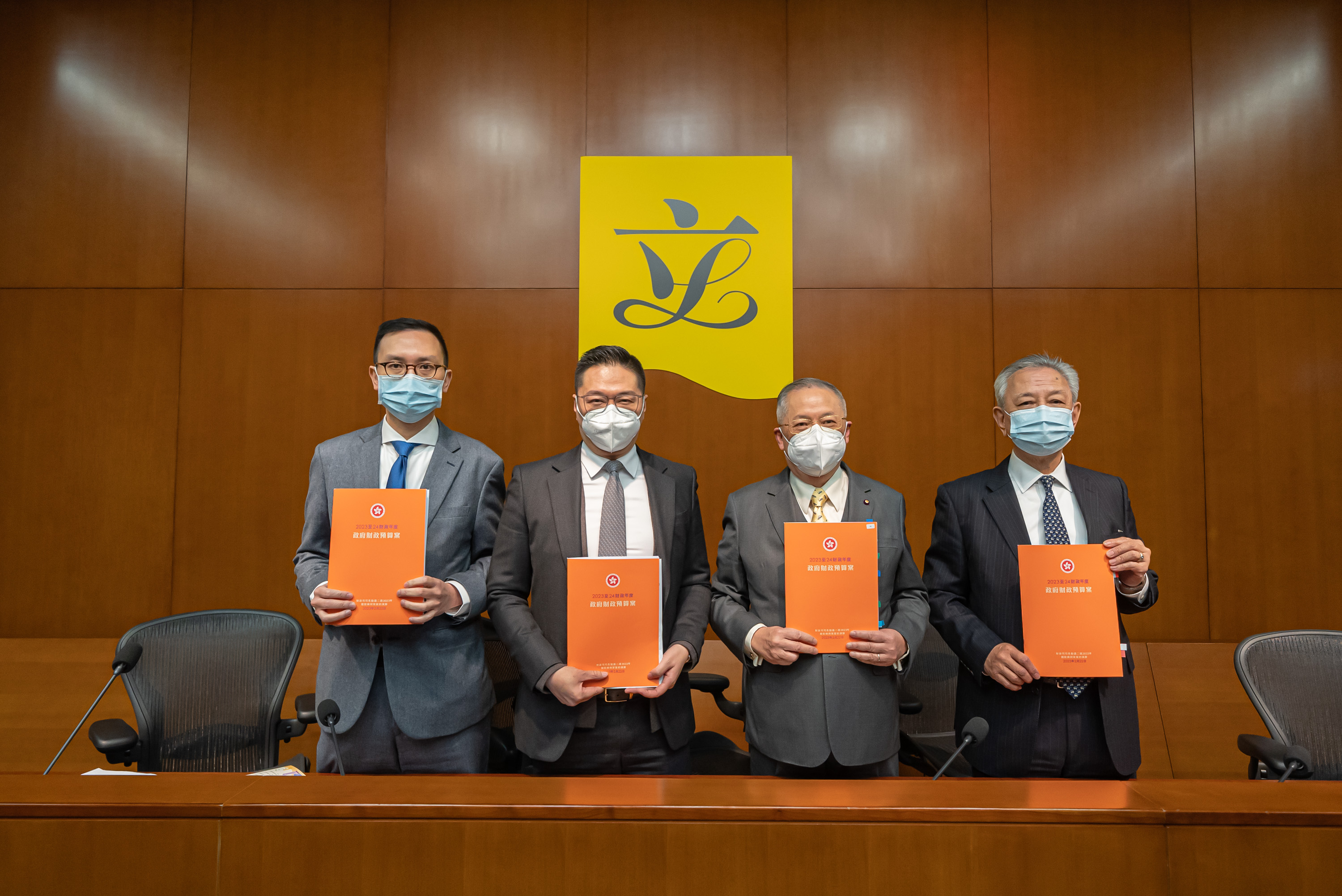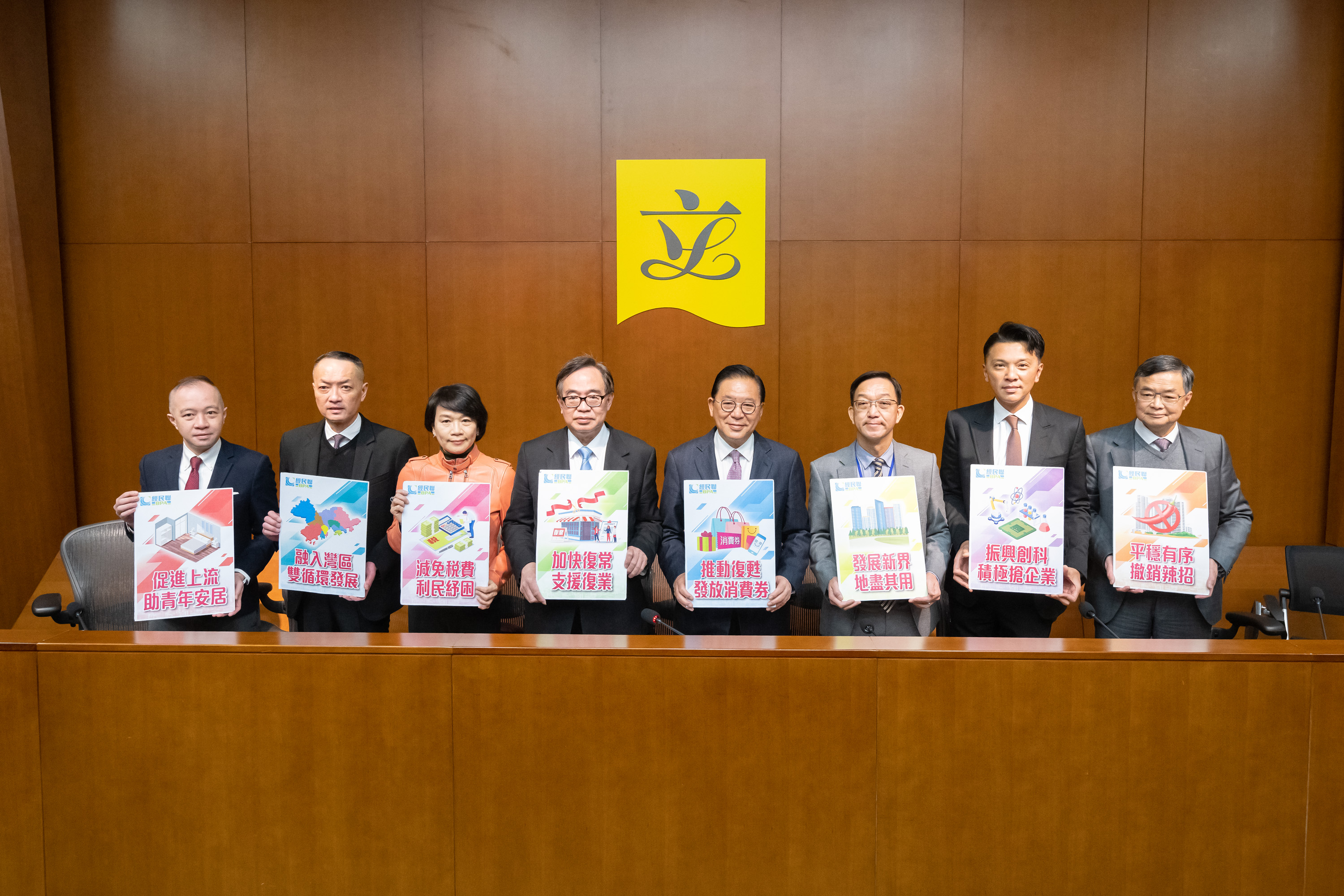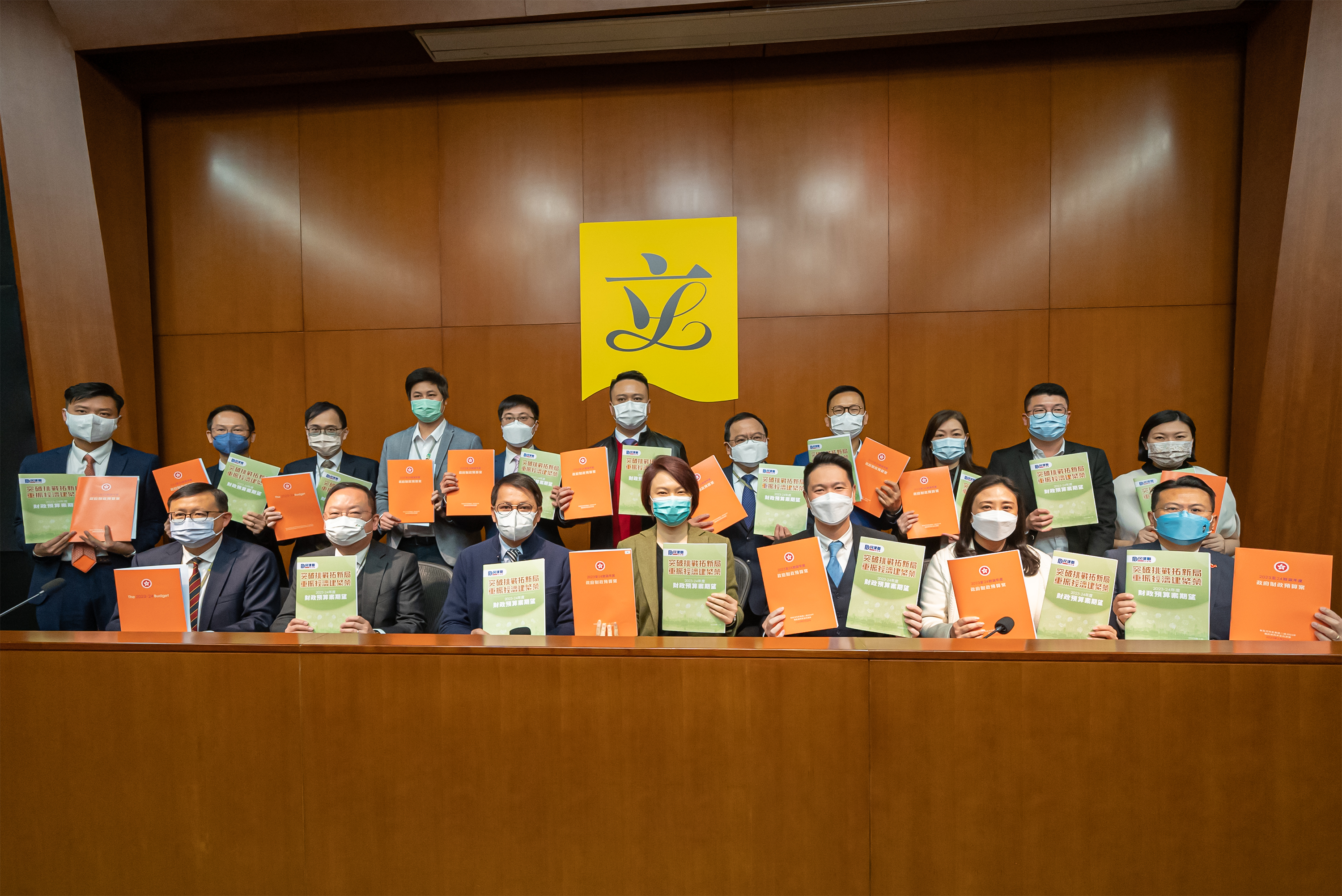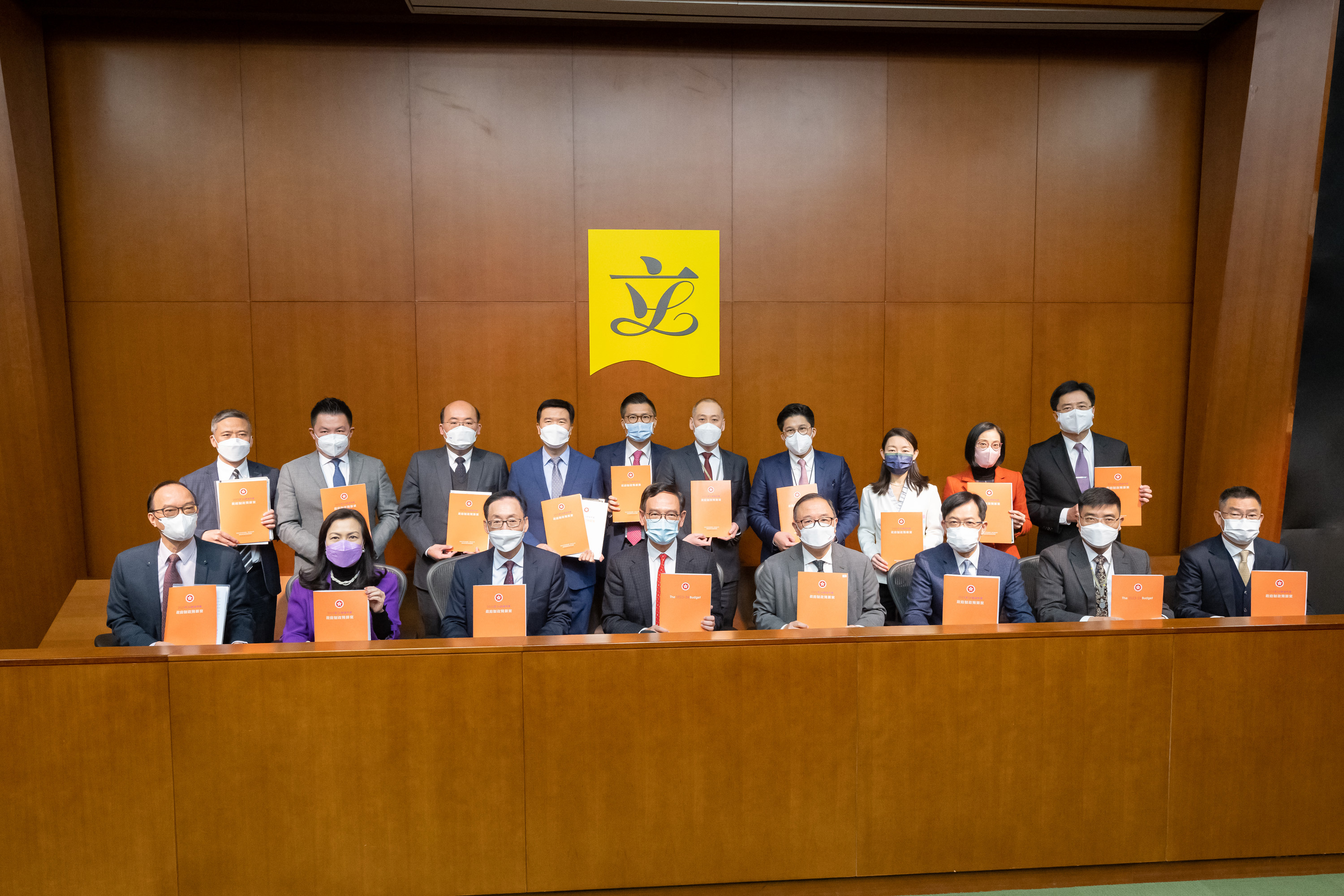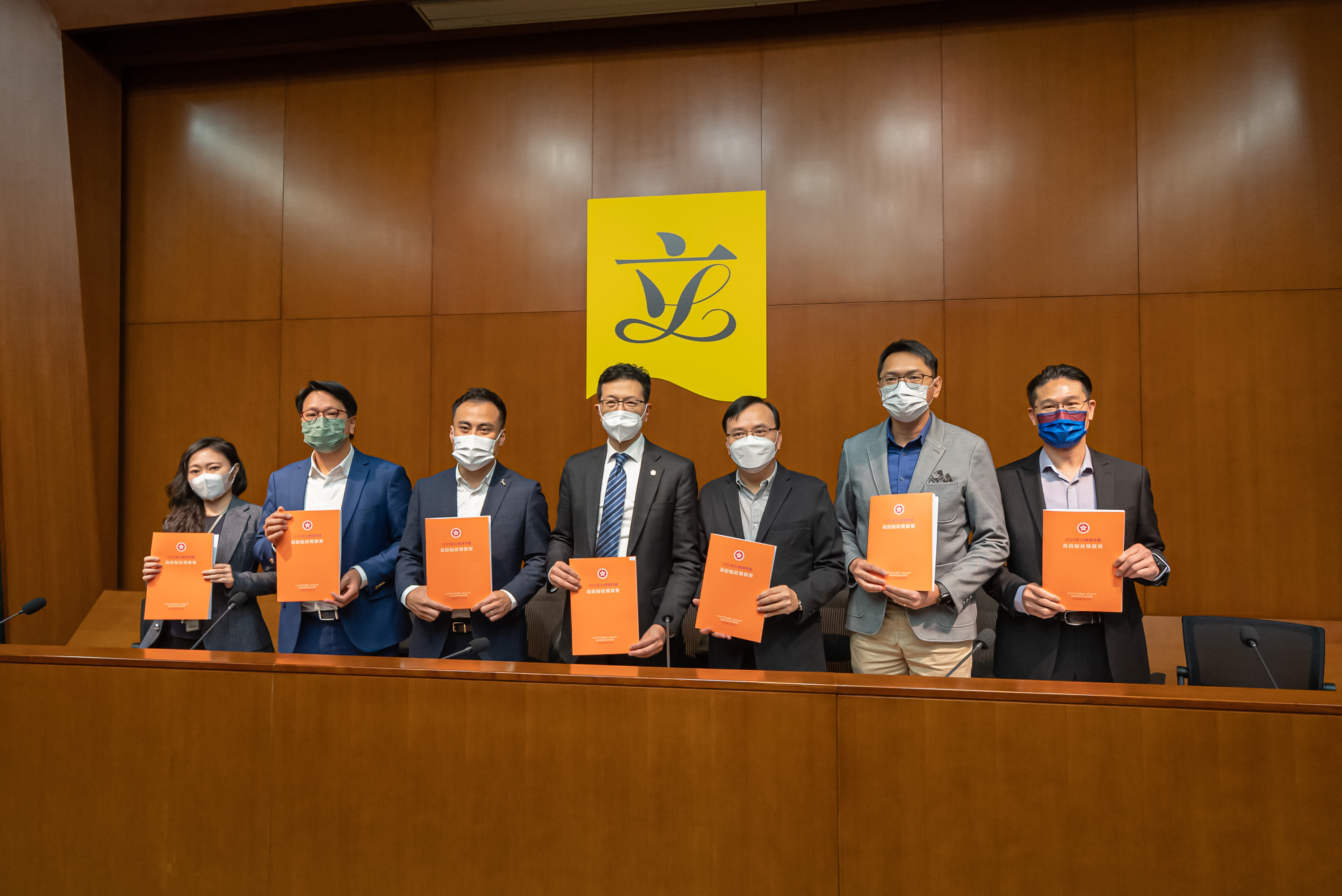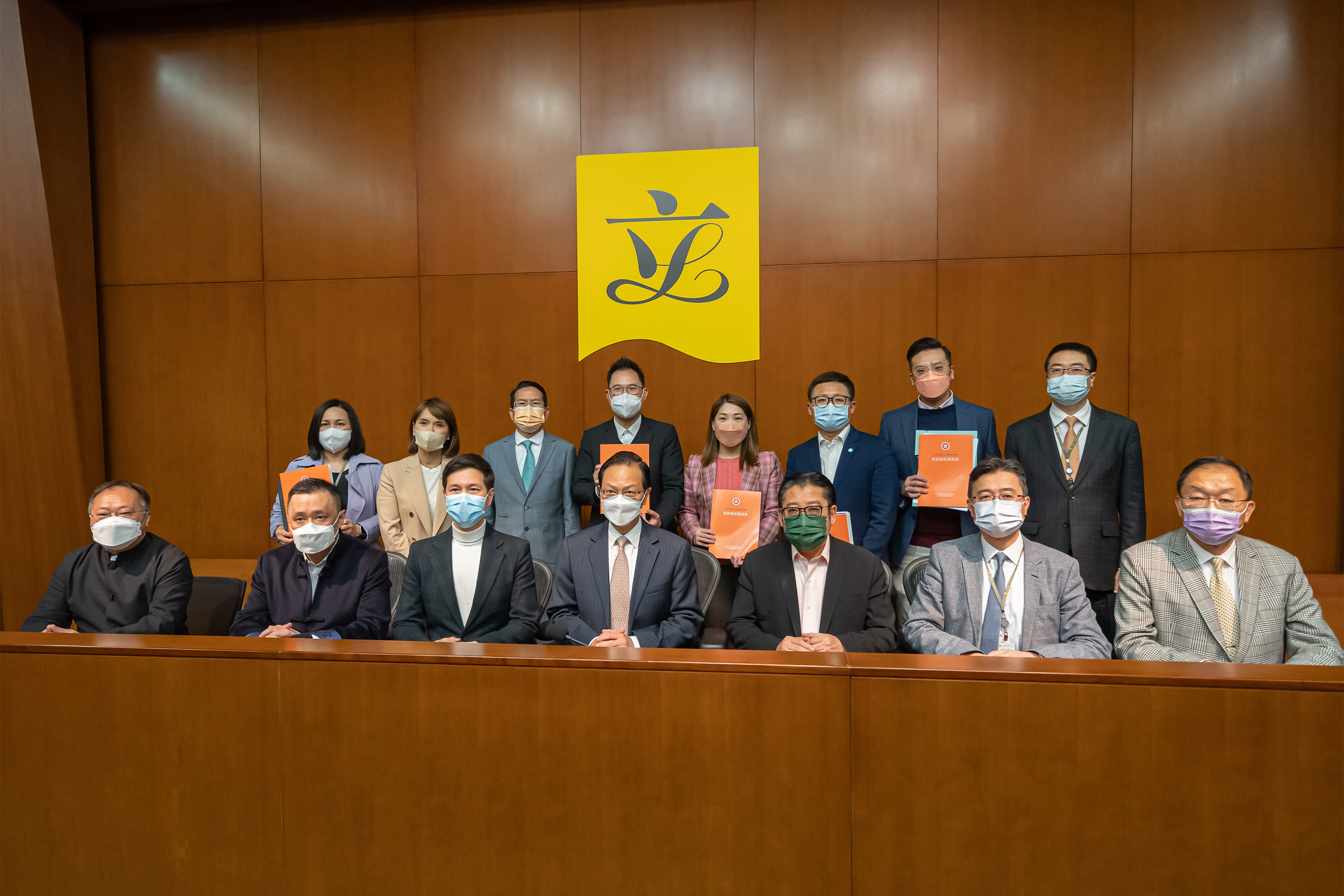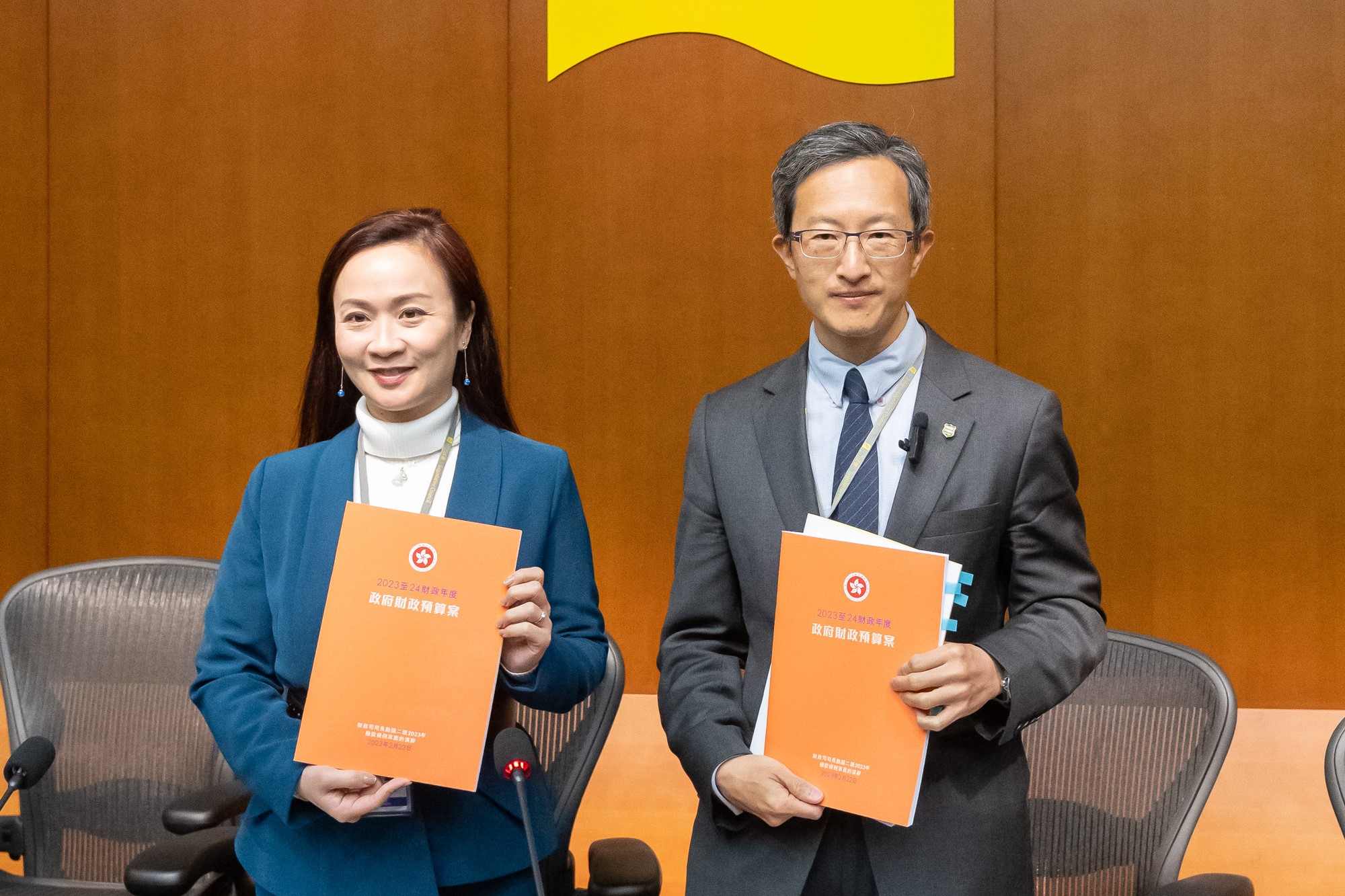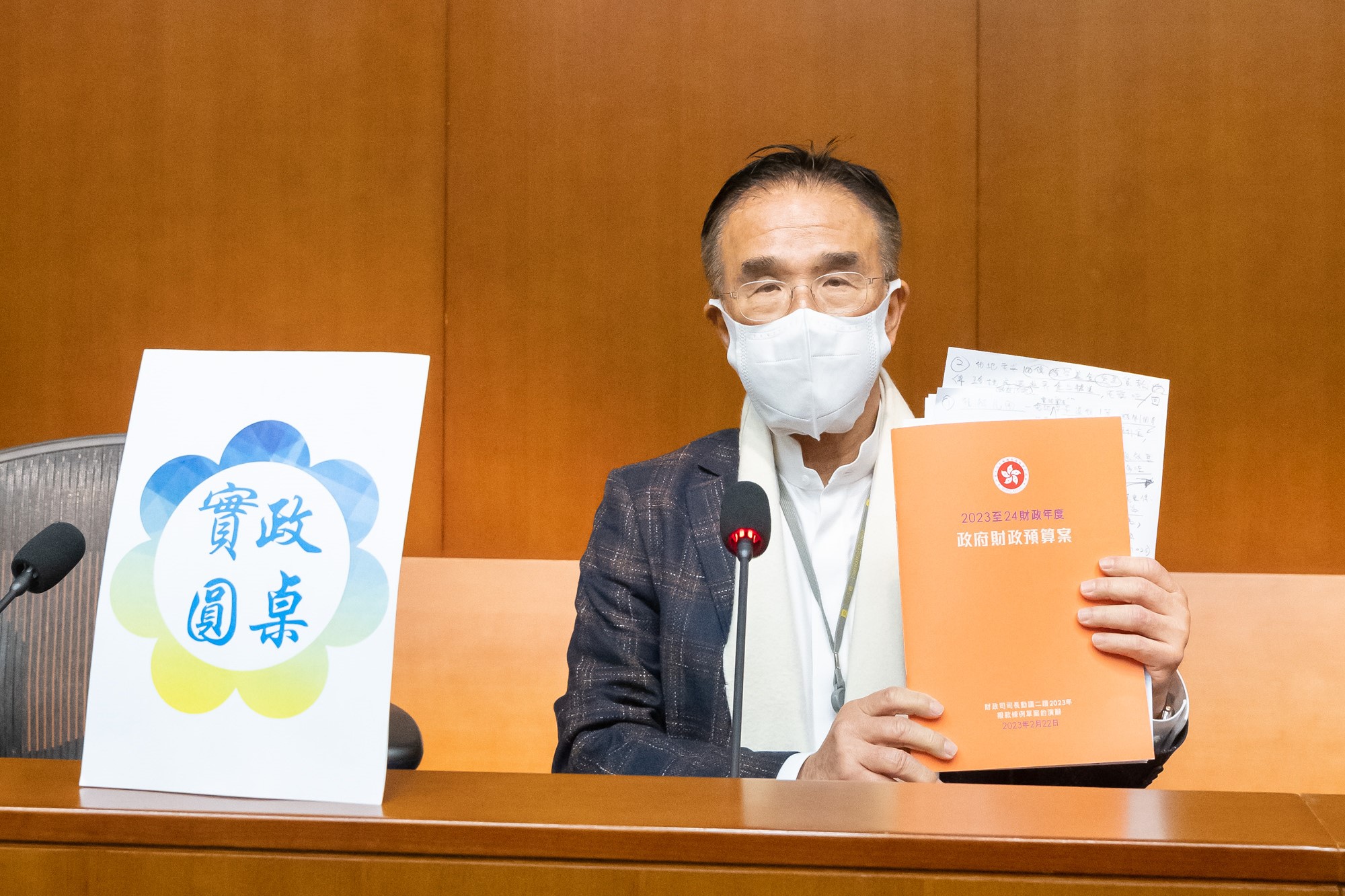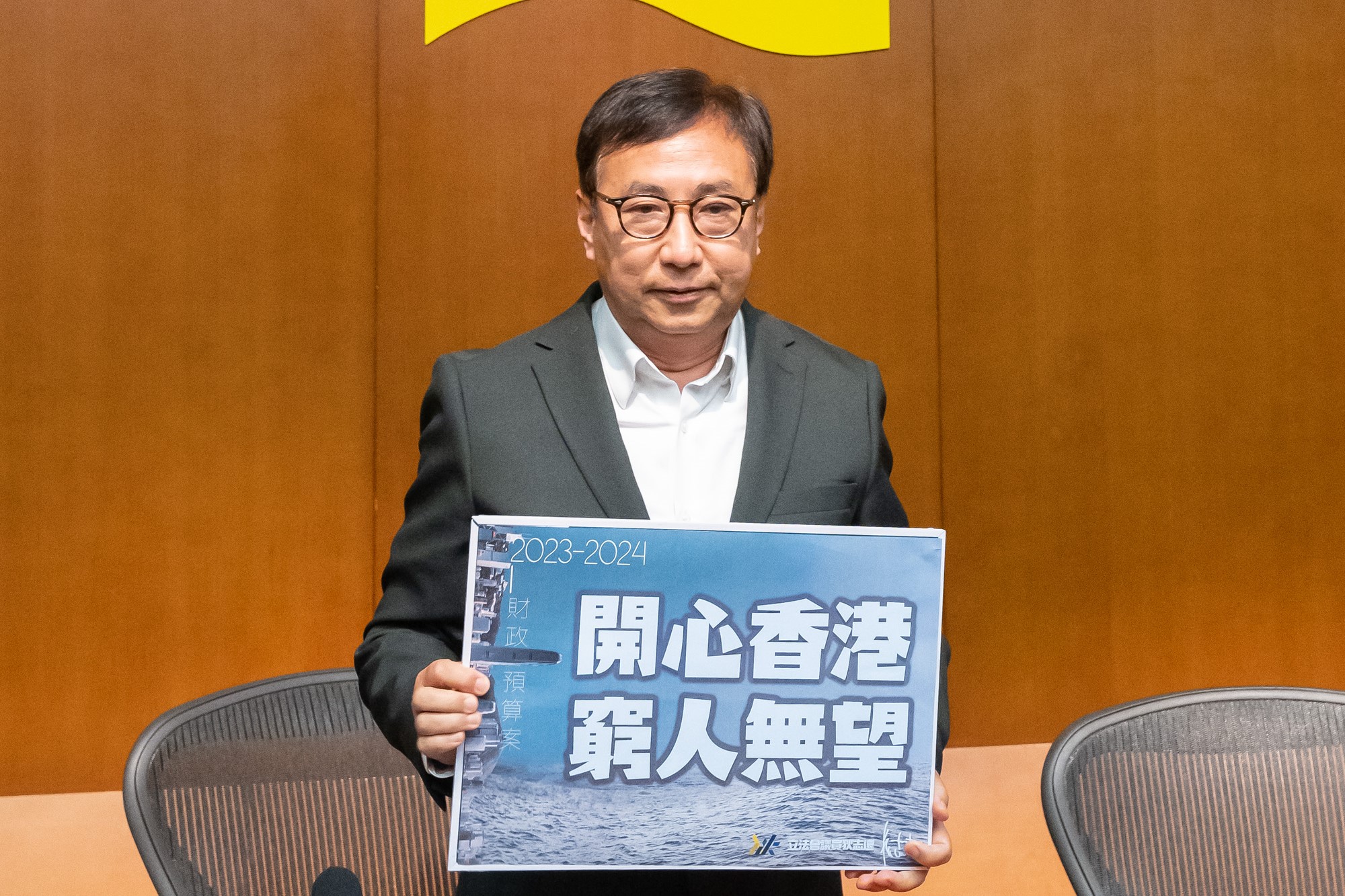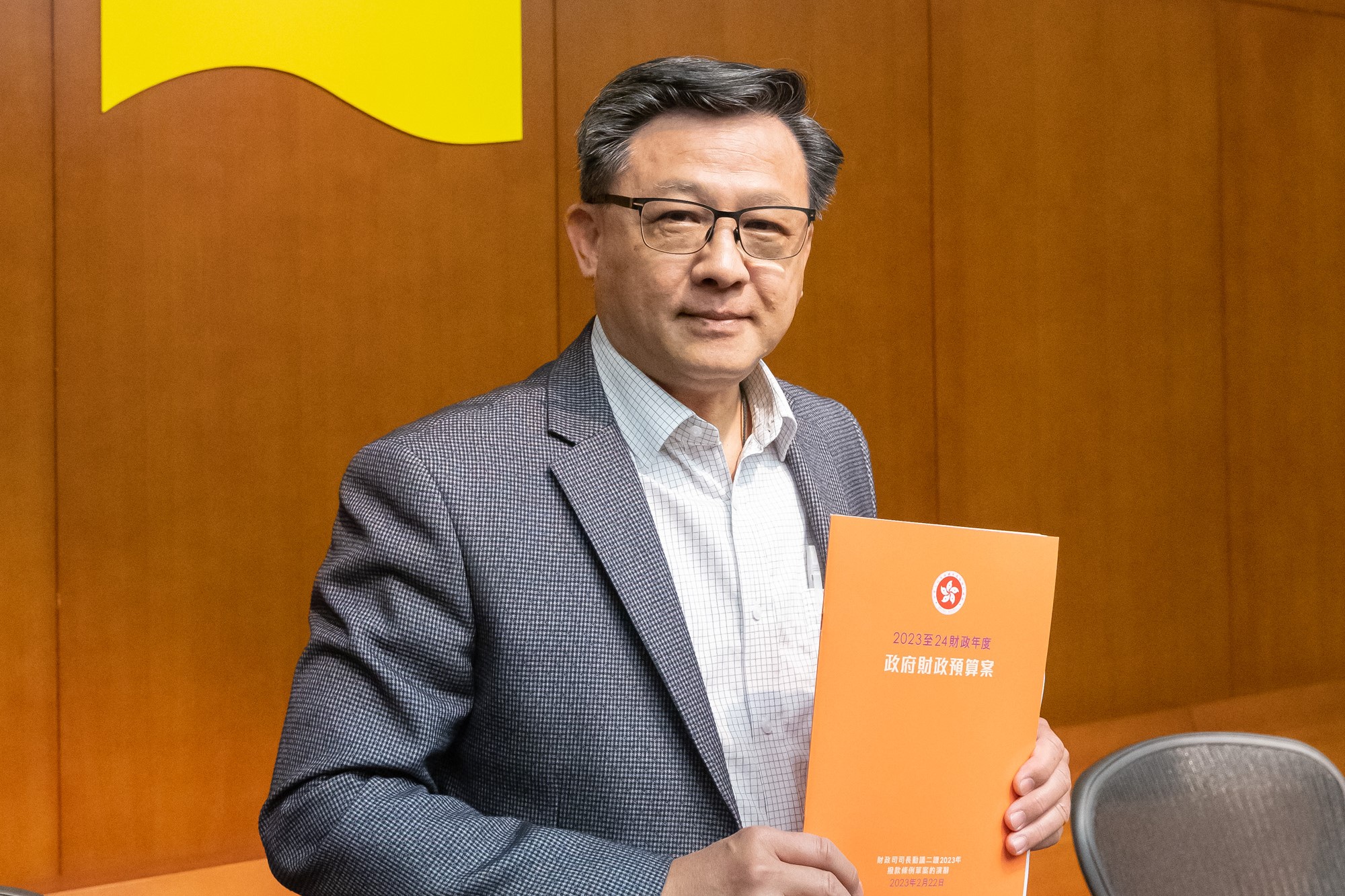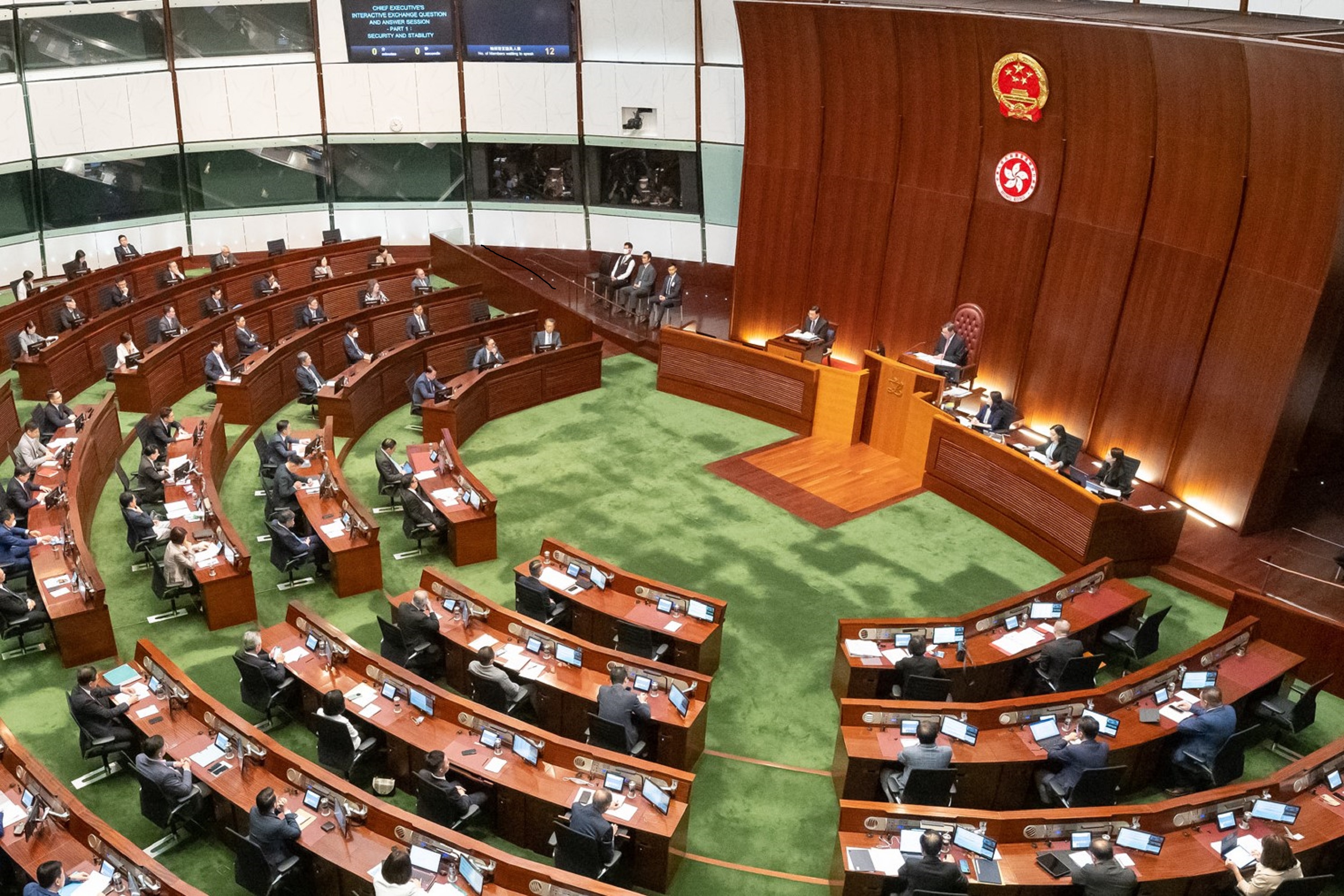The Legislative Council
Annual Report 2023
Introduction
Meetings of the Legislative Council (“LegCo”) are open to the public and may be conducted in Cantonese, English or Putonghua, with simultaneous interpretation and sign language interpretation. The proceedings of Council meetings are broadcast live on the Council’s website, reported by the mass media, and recorded verbatim in the Official Record of Proceedings of LegCo. The business transacted at regular Council meetings mainly includes tabling of subsidiary legislation, papers and reports; asking of questions for replies from the Government; consideration of bills; and debates on motions.
Council meetings held
(the 2023 session began on 11 January 2023 until 22 December 2023)
(the 2023 session began on 11 January 2023 until 22 December 2023)
34
(including two Chief Executive’s Question and Answer Sessions and two Chief Executive’s Interactive Exchange Question and Answer Sessions)
(including two Chief Executive’s Question and Answer Sessions and two Chief Executive’s Interactive Exchange Question and Answer Sessions)
Meeting hours
313
Tabling of subsidiary legislation, papers and reports
Subsidiary legislation refers to any proclamation, rule, regulation, order, resolution, notice, rule of court, bylaw or other instrument made by designated authorities under or by virtue of relevant ordinances and having legislative effect. Such legislation is subject to the Council’s scrutiny through a positive or negative vetting procedure. Members or public officers may move motions in the Council to amend subsidiary legislation.
Papers tabled in Council include annual reports of government departments and public bodies, as well as reports of the Council’s committees. Members and public officers may address the Council on these reports.
Subsidiary legislation subject to negative vetting tabled
133
Papers and reports tabled
197
Questions
Any Member may address questions to the Government on its work, either seeking information on a particular matter or asking for official action with regard to that matter. The Member must specify whether an oral or a written reply is required. For questions seeking oral replies, supplementary questions may be put by any Member to request further elaboration after the public officer has replied. Members may, with the President’s permission, ask urgent questions on the ground that they are of an urgent character and relate to matters of public importance.
Oral questions
150
Supplementary questions
840
Written questions
488
Bills
The Government is primarily responsible for proposing new legislation or amendments to existing legislation in the form of bills for consideration by the Council. Subject to certain conditions, Members may introduce bills into the Council. A bill has to be given three readings for its passage by the Council. A copy of every bill passed by the Council, certified as a true copy by the Clerk to the Legislative Council, shall be submitted to the Chief Executive for signature.
Bills introduced
Bills passed
Bill negatived
Motions
Motions are a mechanism through which most Council business is transacted. Consideration of a bill takes place by way of a series of motions moved, debated and voted upon by Members. Amendments to bills and approval for or amendments to subsidiary legislation subject to positive vetting are effected through motions. Subsidiary legislation subject to negative vetting may also be amended by way of motions.1
The Government may move motions under Article 73(7) of the Basic Law (“BL”) to seek the Council’s endorsement of the appointment of the judges of the Court of Final Appeal.
Members may move motions under BL 75 to amend the Rules of Procedure (“RoP”).
In addition, Members may debate motions not intended to have legislative effect. These debates provide opportunities for Members to express views on issues concerning public interest and call on the Government to take actions. Such motions include motions moved under RoP 16(2) or 16(4) for the adjournment of the Council for debate on issues of urgent public importance or concerning public interest.2
-
Motions with legislative or binding effect may be called “proposed resolutions”.
-
No motion for the adjournment of the Council under RoP 16(2) or 16(4) was moved in this session.
Requests for leave of the Council to give evidence of Council proceedings
Requests for leave of the Council to give evidence of Council proceedings under section 7 of the Legislative Council (Powers and Privileges) Ordinance (Cap. 382) and Rule 90 of the Rules of Procedure (“RoP”) shall be submitted to the Clerk to the Legislative Council and placed on the Agenda for a Council meeting as appointed by the President. Unless on a motion moved by a Member the Council determines that such leave be refused, the Council shall be deemed to have ordered that such leave be granted. Where the request for leave of the Council is sought during any recess or adjournment or dissolution of the Council, such leave may be given by the President under section 7(2) of Cap. 382 and RoP 90(4).
Request for leave: 1
Leave requested by the Department of Justice was granted at the Council meeting of 29 March 2023 for seven officers of and persons employed by the Council to give evidence in the criminal proceedings in respect of HKSAR v WONG Ka-ho & 12 others (DCCC 606-610, 1069/2020 & DCCC 259/2021).
Policy Address debate
The Chief Executive (“CE”) delivers a Policy Address to the Council annually. The Chairman of the House Committee moves a motion to thank CE for the Policy Address (“Motion of Thanks”) at a Council meeting held after the address. A debate follows, with Members giving views on the Policy Address and public officers responding to such views.
Delivery of the 2023 Policy Address
25 October 2023
Debate on Motion of Thanks
22 to 24 November 2023
Voting on the Motion
24 November 2023 (passed)
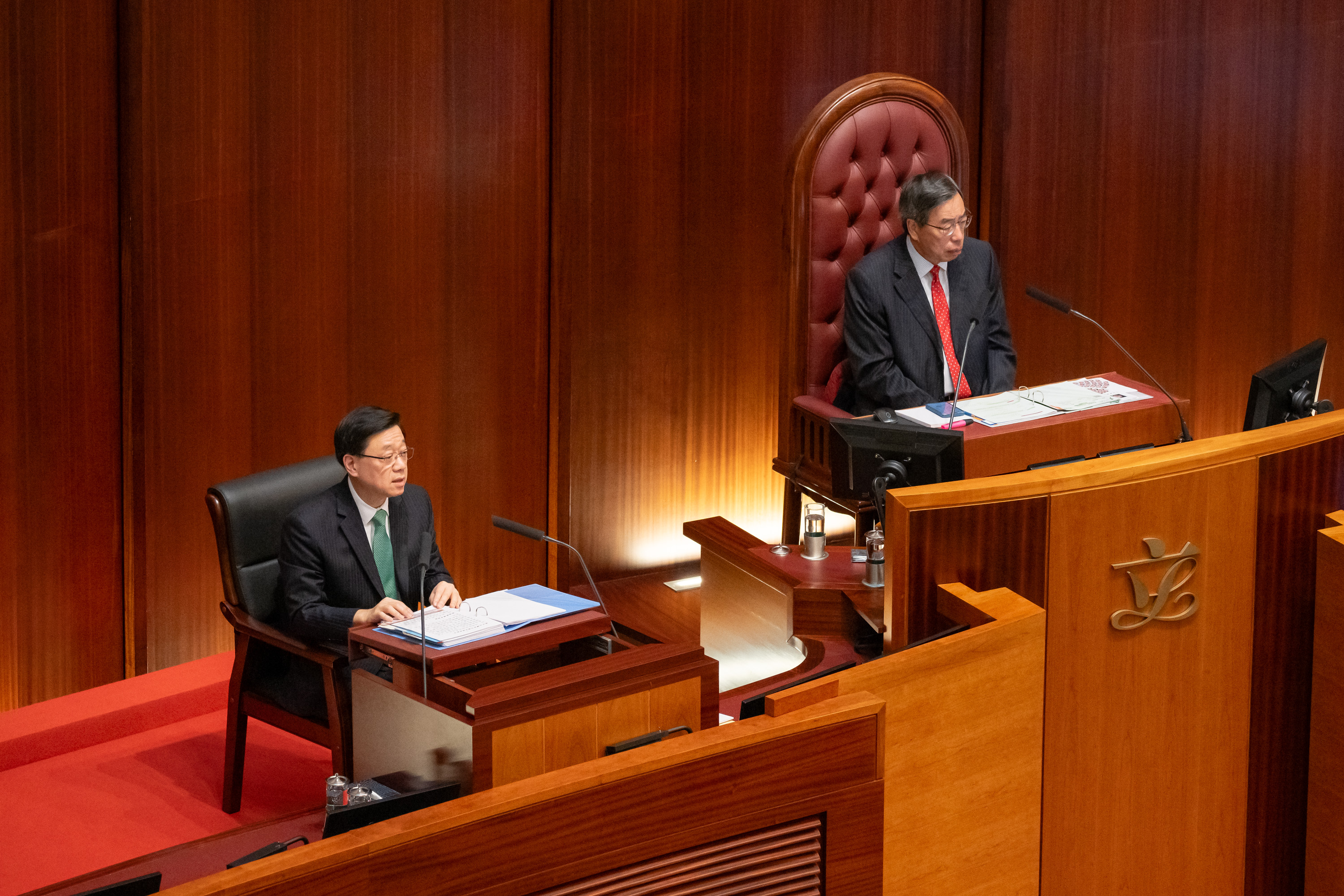
The Chief Executive, Mr John LEE Ka-chiu, delivers the 2023 Policy Address, with the theme “A Vibrant Economy for a Caring Community”, on 25 October 2023
Members of different political affiliations give media briefings to share their viewpoints on the Policy Address
Budget debate
Before the end of a financial year on 31 March, the Financial Secretary presents to the Council his Budget for the next financial year commencing on 1 April in the form of an Appropriation Bill and the Estimates of Expenditure. After the Finance Committee has examined the proposed Estimates of Expenditure at its special meetings, the Appropriation Bill is brought back to the Council for consideration and decision. The Finance Committee held nine special meetings between 11 and 17 April 2023 to examine the 2023-2024 Estimates of Expenditure.
No amendments were proposed to the Appropriation Bill 2023 (“Bill”). The Budget debate lasted for two meetings.
Bill introduced
22 February 2023
Resumption of Second Reading debate on the Bill, consideration by committee of the whole Council and Third Reading
26 and 27 April, and 3 May 2023
(two meetings)
(two meetings)
Bill passed
3 May 2023
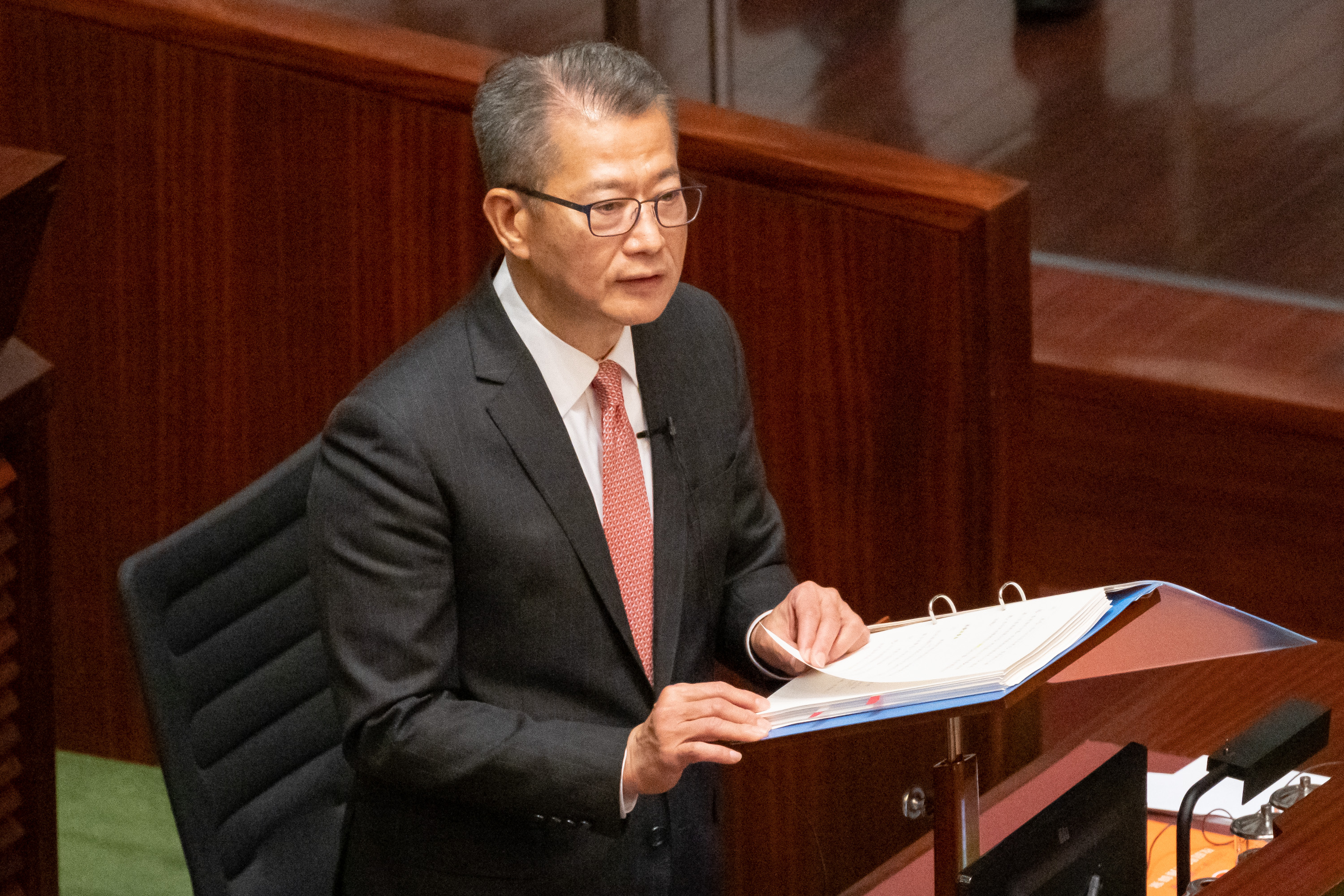
The Financial Secretary, Mr Paul CHAN Mo-po, delivers the annual Budget Speech at the Council meeting of 22 February 2023
Members of different political affiliations meet the press to present their perspectives on the Budget Speech
The Chief Executive’s Question and Answer Sessions and Interactive Exchange Question and Answer Sessions
Four Chief Executive (“CE”)’s Question and Answer Sessions (“Q&As”) were held in January, May, July and October 2023, of which two (in May and July 2023) were new Interactive Exchange Q&As introduced by CE with a view to optimizing the contribution of “patriots administering Hong Kong”. The new Interactive Exchange Q&As combine the advantages of the conventional CE’s Q&As, motion debates, and Policy Address consultation, and facilitate CE in explaining policies, communicating with Members, and collecting views to assist him in formulating his policy decisions. Both the Government and Members can through fruitful exchanges make recommendations of measures and policies.
Introduction
Introduction
Tabling of subsidiary legislation, papers and reports
Questions
Bills
Motions
Requests for leave of the Council to give evidence of Council proceedings
Policy Address debate
Budget debate
The Chief Executive’s Question and Answer Sessions and Interactive Exchange Question and Answer Sessions

